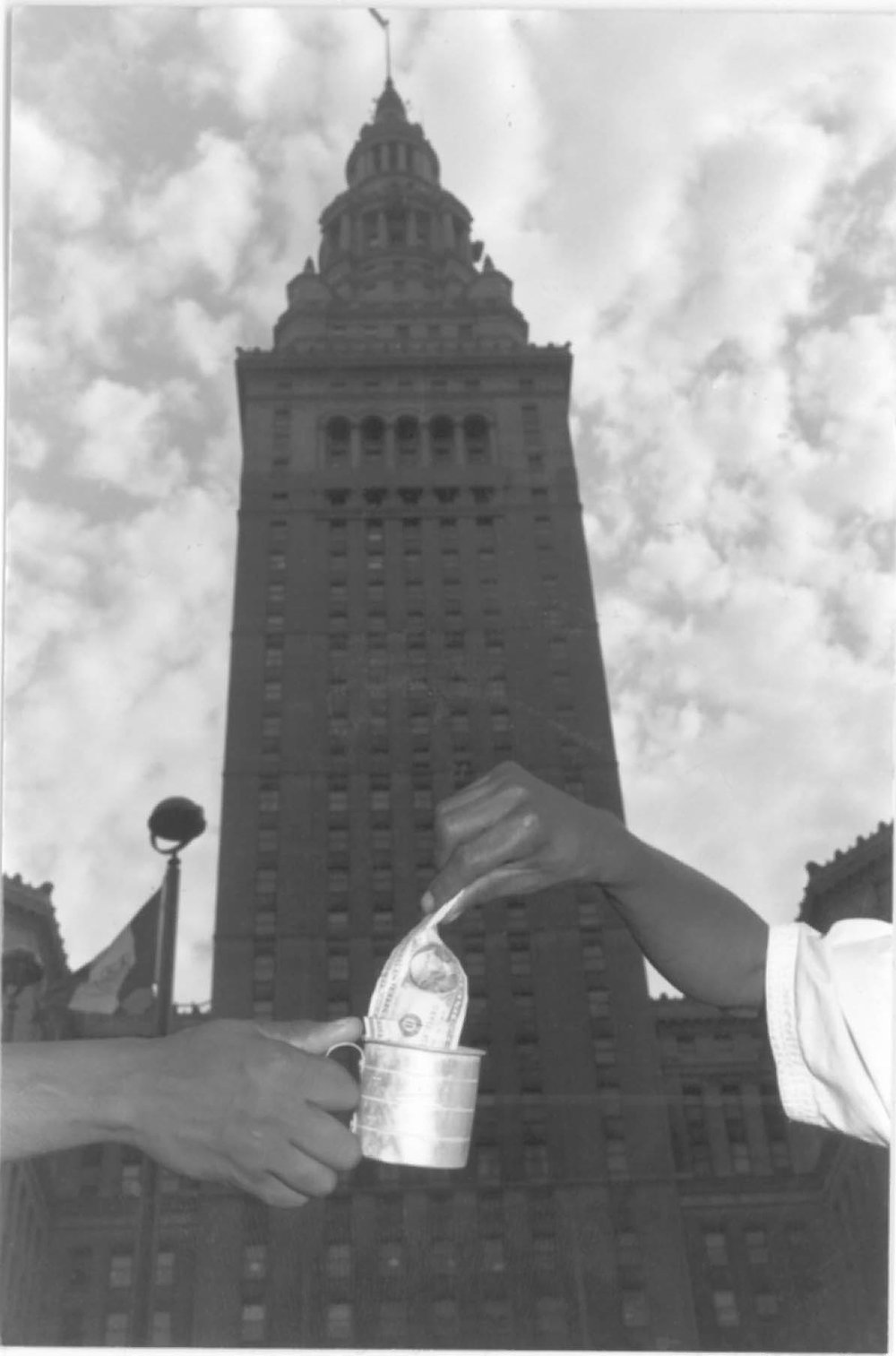Solutions: How To Reduce Panhandling in Cleveland
 For more information contact Northeast Ohio Coalition for the Homeless www.neoch.org
For more information contact Northeast Ohio Coalition for the Homeless www.neoch.org
In almost every survey of pedestrians and those who work downtown, one of the biggest concerns is panhandling. From small cities such as Bloomington Indiana to mega cities like Atlanta, eradicating panhandling is always on the top of the list for Mayors. Often panhandlers are confused with homeless people, and while there may be some overlap they are separate and distinct populations. For hundreds of years, poor people, those with addictions and the mentally ill have begged for money on the streets of urban communities. Cities have tried law enforcement, anti-panhandling publicity, and shaming the population, but nothing has worked. We have not tried meeting with the panhandlers to find alternatives for these out of work sales people. What would it take to convince people not to beg for money?
NEOCH coordinates all the outreach teams in Cleveland, and we can respond to issues if there are people sleeping outside. We respond to City Council and City officials who call regarding homeless people. This is separate from panhandlers who many times are not in fact homeless. Some stay in the shelter, but others pay for housing with their income and therefore the homeless groups have no contact with these individuals. Most panhandlers do not have access to the wealth of resources available to homeless people because they rarely access shelter. We work closely with Downtown Cleveland Alliance, and all the teams meet regularly to coordinate services. We also have regular contact with Cleveland Police Department and can quickly respond to calls about people facing a housing crisis.
NEOCH believes that Cleveland should take the lead ahead of the Republican Convention to fund a panhandler outreach staff to interact and interview panhandlers then work to engage them in alternatives to begging. We could begin to develop solid information, and figure out the challenges we need to overcome to reintroduce these individuals into the workforce. We would be interested in hiring someone to meet with the panhandlers and encourage them to find alternative employment, assist with disability, or address health care issues that are forcing these individuals to beg. Those who refuse, we would ask to sign a code of conduct and wear a vest declaring that they will abide by the rules of downtown. We would be responsive to local businesses and law enforcement to engage these individuals and work to dramatically reduce the level of panhandling locally.
We believe that we could market the “Cleveland model” for dealing with panhandling and sell this idea to neighborhoods such as Ohio City or Gordon Square or even other cities such as Baltimore or Detroit struggling with panhandling. We believe that a social service response will be much more effective than a law enforcement strategy. We believe that local business owners and pedestrians will view this as progress and a solution to a problem that is perceived as out of control in most cities.
We also want to continue to fund alternatives to panhandling such as the Street Newspaper program or sponsor a competition among area employment non-profits to serve these hardest to serve individuals. We believe that competition can foster innovation. We also believe that talking to these people as tax payers who are currently struggling will get us further then the sticks we have tried in the past. We can expand on all these ideas with a bottom line of reducing panhandling and implementing a “friendly” population working to find stability.
Brian Davis
Posts reflect the opinion of those who sign the entry
